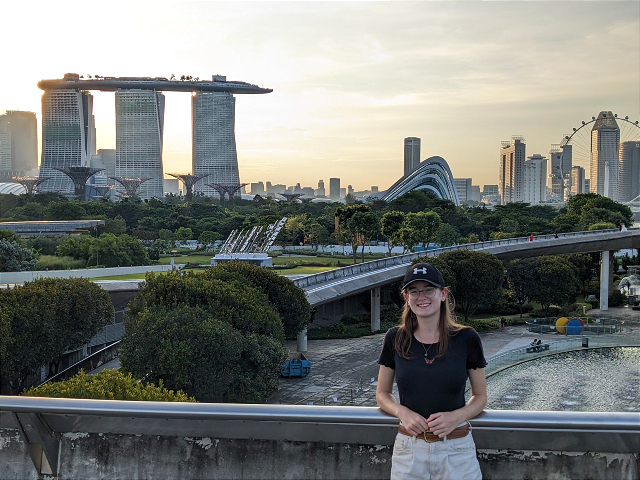
This is your sign to study abroad!
I am probably not the first person to tell you that choosing to study abroad was the best decision I made at university. Having entered my final semester here at The University of Manchester (UoM), I often find myself reflecting upon just how much my international experience at the National University of Singapore has contributed to both my current academic passions and future career prospects. In this blog, I will outline my recommendations for applying to study abroad, before highlighting the various skills developed as a result.
My top tips for applying
- Enrol onto the international study programme as early as possible. As a prospective student, I directly applied to the Geography with International Study programme through UCAS to guarantee a place abroad in my third year. I would recommend applying to the international study course even if you’re not sure you can reach the grades, as if you still manage to meet the grade requirements for the normal Geography course, you will automatically be placed onto this and can reapply for study abroad in your second year if you have a 2:1 or above. It’s like two offers in one!
- Consider what is most important to you for your destination. Factors you may consider include distance from home, cost of living, university specialisations, accommodation, culture, and language. Personally, I was striving to study in a big city far from home with nice beaches nearby! Consequently, I applied to universities in Singapore, Sydney, California, Vancouver, Melbourne, and Auckland.
- Be aware of the competitiveness of each university. Just like any application, it is important to include a mixture of more and less competitive universities. If you want to go to a particular city, there are sometimes two universities offered. For example, I applied to both University of British Colombia (very competitive) and Simon Fraser University (less competitive) in Vancouver. This increases your chances of being placed in that city!
- Include as many details as possible in your application. To increase your chances of being placed at one of your top destinations, be sure to demonstrate in-depth research. The application process includes a financial plan; a general motivational letter for all destinations (like a UCAS personal statement); and specific motivations with proposed module choices for your top three destinations. The more thoroughly this is completed, the better!
Skills enhanced by studying abroad
After completing my study abroad, I was offered an internship via UoM’s Student Experience Internships initiative (for penultimate year UoM students). Moreover, I have been applying to Master’s courses for the upcoming academic year. In interviews for both, my experience abroad has proven invaluable when evidencing the following skills:
- Intercultural communication and sensitivity. Interacting with diverse communities while studying abroad broadened my perspective, allowing me to demonstrate understanding and challenge stereotypes. This has proven particularly valuable when applying to international Master’s programmes.
- Adaptability, resilience, and independence. Being able to relocate to a new country alone, adjust to unfamiliar academic settings, and develop social connections provide some of the most concrete examples of these skills.
- Networking. Having contacts overseas who can write you reference letters for job or further study applications makes you stand out from the crowd!
- Commitment to studies. Dedicating extra time to your degree shows your keen interest in the subject. This is particularly true if, like me, you decide to complete your dissertation research while abroad.
- Organisational skills. There are many tasks that must be fulfilled before embarking on your international adventure, including sorting your student visa, accommodation, modules, and more. Being able to give such concrete examples of task and time management is very attractive to potential employers.
So, why study abroad?
Overall, my international study experience was transformative for my personal, academic, and professional growth – and it’s not just me who says this! All students I have spoken to who have returned from a year abroad emphasise both the fun they had and the transferable skills they have gained. I hope this blog has encouraged you to reflect on what you want from your time at university – for me, studying abroad is a no-brainer!
Written by Hannah, current BSc Geography with International Placement student at The University of Manchester






0 Comments